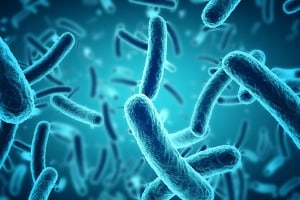
Recovering from intense antibiotic exposures following a difficult struggle with a disease is a period that requires rest, quiet, and peace of mind. This process becomes even more important for children, who are often more at risk to certain side effects and complications because of their differing physiology from that of a normal adult. Many times […]
 Recovering from intense antibiotic exposures following a difficult struggle with a disease is a period that requires rest, quiet, and peace of mind. This process becomes even more important for children, who are often more at risk to certain side effects and complications because of their differing physiology from that of a normal adult. Many times in intense cases, antibiotics may be paired with Proton Pump Inhibitors (PPIs) to assist in the recovery process. Unfortunately, a recent study published in Gastroenterology and Endoscopy News (GEN)has presented the results of a study that suggests that the bacteria C.difficile and PPIs may be connected in children who are currently taking antibiotics.
Recovering from intense antibiotic exposures following a difficult struggle with a disease is a period that requires rest, quiet, and peace of mind. This process becomes even more important for children, who are often more at risk to certain side effects and complications because of their differing physiology from that of a normal adult. Many times in intense cases, antibiotics may be paired with Proton Pump Inhibitors (PPIs) to assist in the recovery process. Unfortunately, a recent study published in Gastroenterology and Endoscopy News (GEN)has presented the results of a study that suggests that the bacteria C.difficile and PPIs may be connected in children who are currently taking antibiotics.
The U.S. Center For Disease Control (CDC) describes the symptoms of C.difficile as usually discomforting, but possibly fatal. The CDC describes symptoms of C.difficile infection as:
Though it is explicitly stated that instances of death and serious complications are rare, a child recovering from antibiotic treatment is uniquely at risk because their immune system is not fully developed and much of their native bacteria has been removed by the antibiotics. The CDC does not mention the connection between C.difficile and PPIs
PPIs are a class of drug that are commonly paired with antibiotics and other assistive treatments in order to amplify the existing effects of the medication regimen. For more information about PPIs and their dangers, visit Parker Waichman’s in-depth coverage of the issue here.
The study published in GEN was a first of its kind, reviewing a total of 14 studies that encompassed approximately 10.5 million children. The purpose was refined to focus on the children in the studies who ended up developing the bacterial infection C.difficile. While the disease is well documented and fairly well understood in adults, the effects and causes of C.difficile are less well understood in children.
Throughout the course of the study, it was seen and eventually concluded that children who had experienced prior antibiotic treatment were vulnerable to infection after starting PPI treatment. The connection between C.difficile and PPIs serves as a potential breakthrough in the understanding of pediatricians and gastroenterologists who were looking for a potential cause for pediatric cases of C.difficile.
Charles Foster, MD, a co-author of the study and pediatric infectious diseases specialist at Cleveland Clinic Children’s expressed the importance of the findings in an interview with GEN. Dr. Foster is quoted as stating:
“In pediatric patients, hospital-acquired infections due to C. difficile have increased over the last 20 years. However, few studies have looked at risk factors for these infections in children,”
Indeed, this breakthrough could help prevent future instances of C.difficile if the connection is definitively proven.
While doctors will continue research to ensure the safety of children in the future, there remain children in the present who have suffered needlessly because of the pairing of PPIs with an antibiotic regimen. For those children, the C.difficile and PPIs link is not the result of an abstract study, but a very real threat.
If you or a loved one know a child who may be at risk to complications due to the link between C.difficile and PPIs, don’t wait. Let Parker Waichman LLP represent you and your family in your time of need. At Parker Waichman LLP, teams of experienced trial lawyers can help gather the right information to help get clients the compensation that they need to help them in this trying time. Contact Parker Waichman today for a free consultation.


